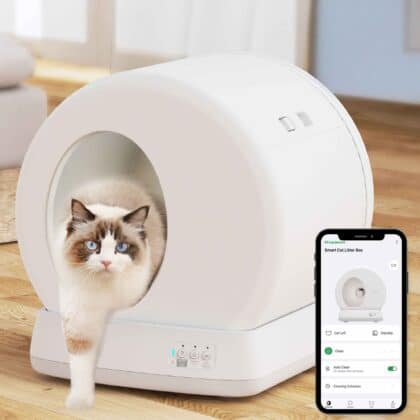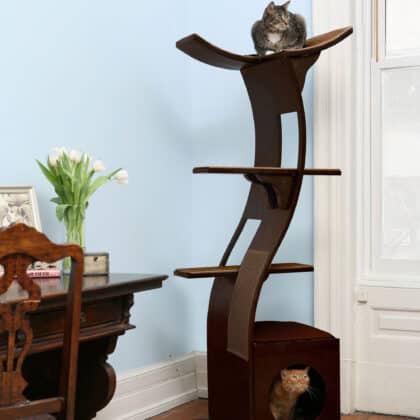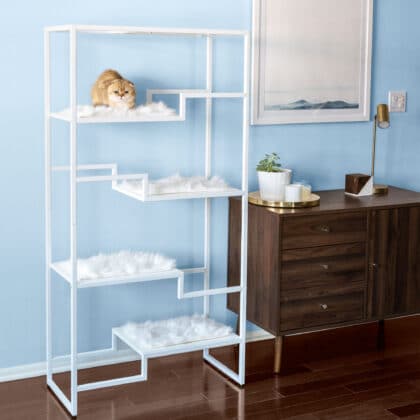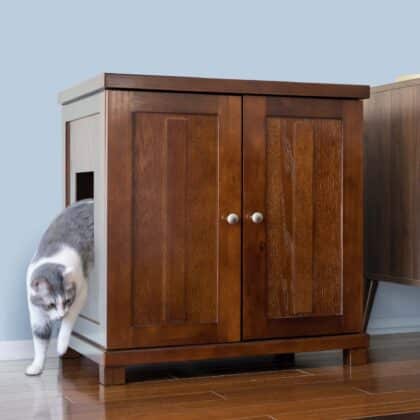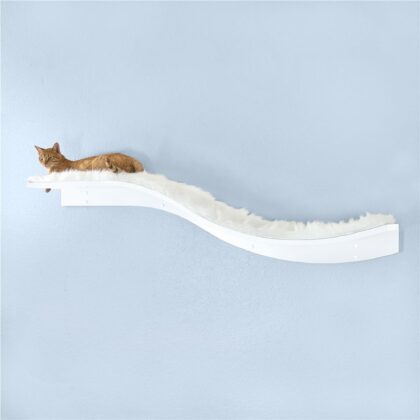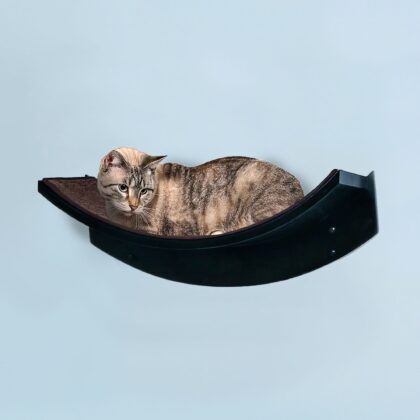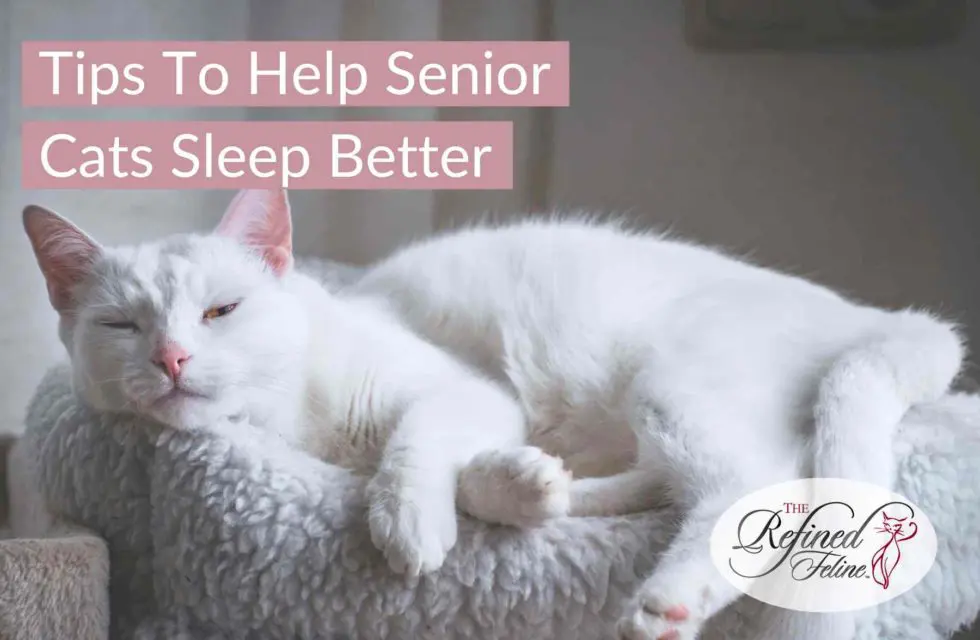
Tips To Help Senior Cats Sleep Better
As our beloved feline companions enter their senior years, their sleep patterns may see some changes that affect the quality and duration of their rest. Older cats often experience age-related conditions that can disrupt their sleep patterns, leading to restlessness, discomfort, and decreased overall well-being. Fortunately, by understanding their unique needs and making some simple adjustments, we can provide our senior cats with the comfort they deserve during their slumber. In this blog post, The Refined Feline will explore ten tips to help senior cats sleep better, promoting their health and happiness.
10 Tips To Help Senior Cats Sleep Better
- Comfortable Sleeping Environment
- Comfortable Temperature and Lighting
- Regular Exercise Will Help Cats Sleep Better
- Consistent Routine
- Adequate Vet Care
- Mental Stimulation
- Calming Techniques
- Noise and Distraction Reduction
- Special Bedding Considerations
- Medication and Supplements
Comfortable Sleeping Environment
The key to proper sleep for cats and humans alike is a comfortable sleeping environment! Creating a cozy and comfortable sleeping environment is very important for senior cats. You may want to consider providing a soft and supportive bed with orthopedic properties that alleviate pressure on their aging joints and muscles. Try memory foam or heated beds because they often offer additional comfort. You want to ensure the bed is easily accessible and located in a quiet area of the house, away from excessive noise and disruptions.
Comfortable Temperature and Lighting
The temperature and lighting in their sleeping environment are also huge factors that can affect sleep for the better or worse. By maintaining optimal temperature and lighting conditions, you can significantly impact a senior cat’s sleep. Make sure to keep the sleeping area at a comfortable temperature, neither too hot nor too cold. Keep in mind that cats typically prefer slightly warmer environments. It will help to provide a warm blanket or heating pad can be beneficial. Additionally, try to provide a dimly lit or dark room to mimic a natural nighttime environment, as cats are more active during dawn and dusk.
Regular Exercise Will Help Cats Sleep Better
Although at a certain age, it may be more of a feat to do so, engaging senior cats in regular exercise during the day can help promote better sleep at night. Try to play with your cat using interactive toys that encourage physical activity. Using feather toys, laser pointers, or catnip-filled toys can help to stimulate their natural hunting instincts. Making sure to engage in moderate exercise helps tire them out, reducing restlessness and increasing the likelihood of a restful sleep.
Consistent Routine
As with humans, having a consistent routine is incredibly helpful for overall well-being, but especially for creating good sleep patterns. Establishing a consistent routine is very important for senior cats, as they thrive on a predictable lifestyle. Try to maintain regular feeding, playtime, and bedtime schedules to help regulate their internal clock. Remember, consistency creates a sense of security, promoting relaxation and better sleep patterns. Make sure to provide meals and play sessions before bedtime to encourage a natural wind-down period.
Adequate Veterinary Care
Incorporating regular veterinary check-ups are crucial for senior cats. Age-related medical conditions such as arthritis, dental issues, or hyperthyroidism can lead to discomfort and disrupt sleep. You want to ensure your cat receives appropriate veterinary care to address any underlying health concerns and promote better sleep. Your veterinarian may recommend certain supplements such as glucosamine or fish oil to support joint health.
Mental Stimulation
Cats need mental stimulation just as much as physical activity. By engaging senior cats in mentally stimulating activities during the day, it can reduce restlessness at night. Try to offer puzzle toys that dispense treats or small portions of food, encouraging your cat to work for their meals. Make sure to rotate toys regularly to keep them fun and interesting. Additionally, set aside dedicated playtime for interactive sessions, using wand toys or chasing balls to keep their minds active. Mental exhaustion can contribute to a deeper and more satisfying sleep for your senior cat.
Calming Techniques
There are several types of calming techniques you can introduce to help soothe your senior cat before bedtime. This can include methods like gentle brushing or massage sessions to relax their muscles and reduce anxiety. Some cats find comfort in being swaddled with a light blanket or using a weighted blanket designed for pets. You may also consider using pheromone diffusers or sprays that emit synthetic feline pheromones, promoting a sense of security and zen.
Related: Is Your Cat Stressed? Learn Why & How To Reduce The Stress
Noise and Distraction Reduction
Cats are hypersensitive to noise, so it’s important to eliminate or minimize noise and distractions during nighttime hours. Make sure to close windows to reduce outside noise, draw curtains to block excess light, and keep electronic devices silent. You may want to consider using white noise machines or soothing instrumental music to drown out any disruptive sounds. Creating a serene environment promotes a tranquil sleep atmosphere for your senior cat.
Special Bedding Considerations
For senior cats with specific needs, you may want to consider investing in specialized bedding options. You can place certain heating pads designed for pets on their beds. They can provide warmth and comfort, particularly for cats with arthritis or joint stiffness. There are also orthopedic beds with memory foam or gel-infused foam that can provide extra support and relieve pressure points. Elevated beds with ramps can assist cats with mobility issues in accessing their sleeping area. You can also avoid the issues of accessing elevated beds, by providing a cat bed that is low to the ground like the Igloo Cat Bed from The Refined Feline. WIth either option you choose, make sure to consult your veterinarian to explore suitable bedding options based on your cat’s individual requirements.
Medication and Supplements
In some cases, veterinarians may prescribe sleep aids or certain supplements to help manage sleep issues with senior cats. There are medications such as trazodone or amitriptyline that may be used to address anxiety or pain-related sleep disturbances. Natural supplements like melatonin or valerian root can also be used to help promote relaxation and aid in better sleep. However, it is essential to consult with your veterinarian before introducing any medication or supplement to ensure safety and appropriateness for your cat’s specific needs.
Help Senior Cats Sleep Better With These Tips
Helping senior cats achieve restful sleep is essential for their overall well-being. By providing a comfortable and serene environment, establishing a routine, addressing any medical concerns, and incorporating mental stimulation, we can help our aging feline friends enjoy a peaceful slumber. Remember, each cat is unique, so observe and adapt your approach to suit your senior cat’s individual needs. With love, care, and attention to their sleep patterns, we can ensure our senior cats enjoy the quality rest they deserve, leading to improved health and happiness.


